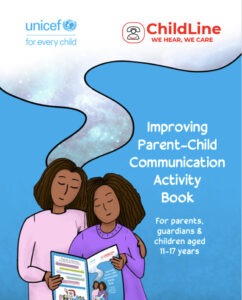What is pregnancy?
Pregnancy happens when two persons each from the opposite sex have unprotected sexual intercourse. To conceive, a sperm from the male fertilises the egg from the female. When this happens an embryo is formed and is implanted in the womb of the woman. Pregnancy usually lasts 37 to 42 weeks or approximately 9 months.
How do women/girls get pregnant?
Women/Girls can become pregnant if:
- They have unprotected sex, that is they do not use contraception
- The contraception fails, for example the condom bursts
- Sexual abuse where they are forced to have sex against their will
*A woman/girl can get pregnant once they have had their period.
Early signs of pregnancy
Pregnancy symptoms vary from woman to woman and each pregnancy is unique. However, here are the most common symptoms of pregnancy.
- Delayed Period – A delayed period or a missed period is a common symptom of pregnancy. Some women continue to bleed while they are pregnant and may mistake this as periods, however, the bleeding if present is usually shorter and lighter than a regular period.
- Implantation bleeding – When the embryo implants itself into the womb, usually approximately a week after conception some women may experience a very light bleeding or spotting.
- Swollen/Tender Breasts – Several women experience swollen breast or breasts that feel very sore or tender as early as one week after conception.
- Darkening of Areolas – The colour of the nipples may become darker during pregnancy.
- Fatigue – Feeling extremely tired may be an earlier symptom of pregnancy.
- Nausea / “Morning Sickness” – Some women experience feeling upset and vomiting throughout their pregnancy.
- Backaches – During Pregnancy aches and pains in the lower back is common.
- Frequent Urination – Some women experience an increasing need to urinate when they become pregnant.
- Food Cravings – Many women feel cravings for specific foods when they are pregnant.
While these symptoms are common during pregnancy, they may occur for other reasons. For each of the symptoms described above, there may be an alternative reason for experiencing it. None of the symptoms occur only as a result of pregnancy. However if several of these symptoms are present at the same time, there is a good chance of pregnancy.
Please visit http://www.americanpregnancy.org/gettingpregnant/earlypregnancysymptoms.html for more information on the early signs of pregnancy.
How does a woman know she is pregnant?
The only way to determine or really be sure whether or not a person is pregnant is to visit a health care practitioner or take home pregnancy tests. Home pregnancy tests are easily accessible at pharmacies and give a reading within minutes of taking the test.
Changes during pregnancy
As soon as a woman becomes pregnant, her body begins to change so that it can support both herself and the unborn baby. All of the body functions start to work much harder. The heart has to pump more blood around the body, in particular to the womb and the fetus. Pregnancy also causes emotional changes. These changes happen every week.
Staying healthy during pregnancy
Pregnancy puts great demands on the mother’s body so it is important to keep healthy. The more healthy and relaxed the mother is, the better it will be to cope with the demands of pregnancy. A healthy lifestyle combines many factors:
- Balanced Diet – A poor diet can cause a low birth weight. Excessive weight gain during pregnancy can cause back problems, muscle cramps and high blood pressure. Foods that are high in protein, vitamins, carbohydrates, fats, and minerals and fiber are recommended. Lessen the intake of saturated fats and sugar, and salt. Drink plenty of fluids.
- Regular Exercise – Mild exercise, such as walking or swimming, is good and will help cope with the workload of pregnancy and the demands of labor. Do not do forceful exercise as this would be harmful. If pain is experienced, exercise should be stopped.
- Baby’s Health – Smoking, alcohol, drugs and certain medications should be avoided as they can cause serious birth defects.
Giving birth
When it is time to give birth, the woman goes into labour. She has contractions or tightening of the womb which cause the amniotic sac to burst and her cervix to open up. The mother also gets the strong urge to push. These, combined with the help of doctors and nurses bring the baby into the world. All public hospitals and many private health institutions in Trinidad and Tobago have sections called Maternity Wards that specialize in making the birth process a comfortable and safe one for both mother and child.
Unplanned Pregnancy
Teen Pregnancies can be difficult because they are usually unplanned. Teen Pregnancy is one of the most difficult experiences that a teenager can face. It is taxing emotionally and teens can be afraid te tell anyone because they are afraid of what people might think or what their parents might do. However it is not safe to keep pregnancy a secret. If a teenager is pregnant, the sooner they talk to someone about it the better it will be for them emotionally as well as health wise.
What are the options if I get pregnant?
It is important to examine the options when faced with an unplanned pregnancy. Some options include:
- Parenting – Keeping the child and raising it responsibly
- Adoption – Giving the child another chance with another family
- Abortion – Terminating the pregnancy
It is important to discuss these options with your parents and with the father of the child.
For information on giving the child up for adoption visit
For more information on abortion read our article on Abortion.
Resources
www.parentingteens.about.com/lr/teen_pregnancy/424869/1/
Additional Information
http://www.teenpregnancy.com/teenage/what-are-my-options.html







